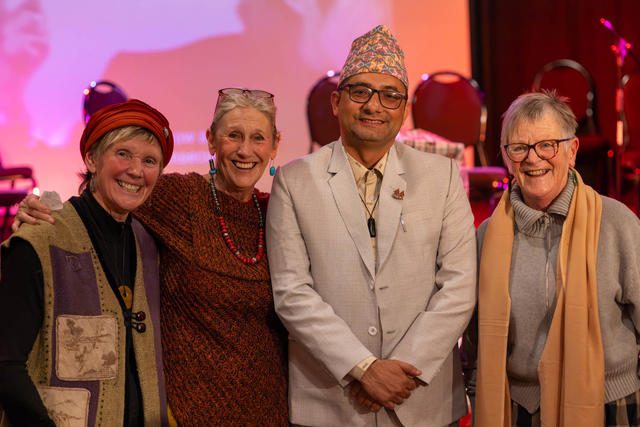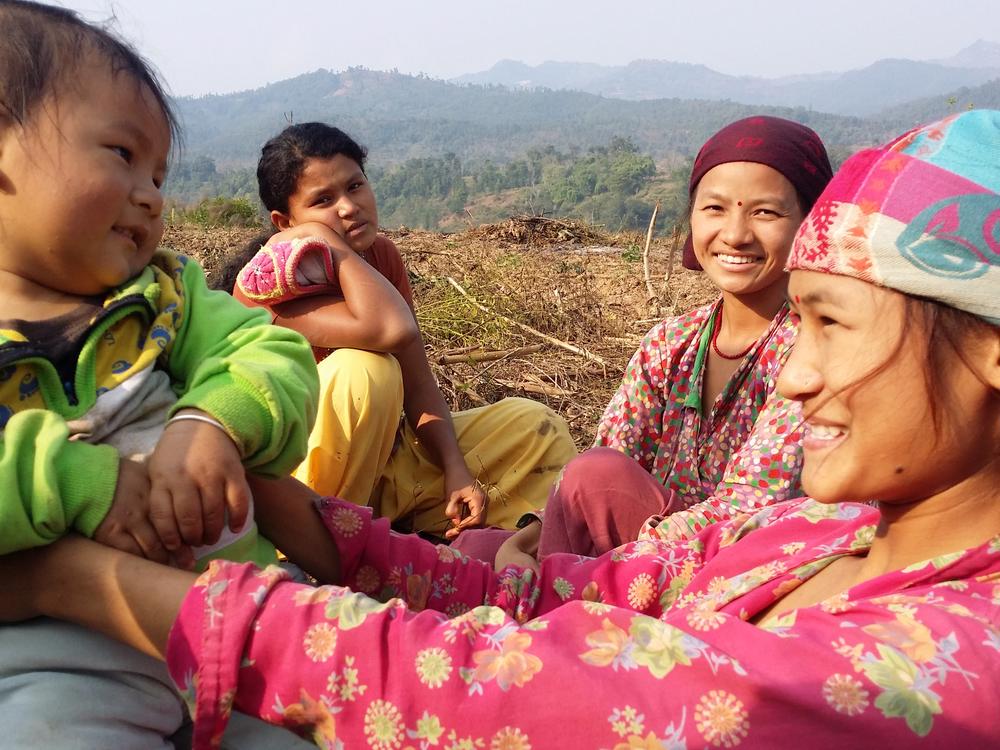CAN Aotearoa is about Women's Empowerment. We support Community Action In Nepal.
CAN Aoteroa's Women's Projects have been designed to lift women and their families from the social and environmental impacts of poverty.
Wellington
We see the connection between empowered women and climate regeneration. We also want to improve the lives of women and their families whose very existence has been a struggle. By improving their education in agricultural practice, by encouraging them to keep their families (especially their daughters in school) and by providing a hand to lift them into sustainable farming we see that these women will work collectively to solve the problems they face in their communities. Educated and resourced women have less children, stand up against child marriage, and have a respected say in the decision making in their communities. They find solutions together. They will stay on their land if they can farm it productively and regeneratively and keep their families from the flight to cities where increased carbon emissions are generated. Watch Katherine Wilkinson's Ted talk in which she makes abundantly clear the need for gender equity as we work together to stop global warming. https://www.ted.com/talks/katharine_wilkinson_how_empowering_women_and_girls_can_help_stop_global_warming
CAN Aotearoa's involvement (page creator)
CAN stands for Common Action in Nepal. We became involved when I visited in 2015 after the devastating earthquakes. We listened to what the women needed. Can Aotearoa, together with CASD Nepal transforms the lives of ethnic caste women and their families.
About us
In 2015 I went to Nepal to help after the earthquake. I went to provide therapy for children who had been terribly impacted by the loss of their homes, their schools and family members. It changed my life for the better. I found something so wonderful to be a part of. I was so moved by the courage of the women that I wanted to find a way to help longterm. Now I work with CASD Nepal and established the charity, CAN Aotearoa as a partner to them.
Use of funds
We use funds for micro loans to very poor and marginalised Nepali women. Some times these loans are used to buy seed or stock or agricultural tools. Women also collaborate to access safe drinking water for their communities.
Other page links
Latest update

When we launch the soil school! 16 August 2025
Jules Matthews and the Trustees have plans to launch a soil school. This has been requested By Prakash Ojha and his wife Sanju who run CAN on the ground in Nepal. WE can see making a difference to family nutrition, school results, farming productivity and eventually to business opportunities in the collectives.
Latest donations

thank you Jane for visiting the CAN give a little and for donating. It means a lot. I hope you will be able to come to the Together event in paekakariki on Friday 1 August. I have been so moved by generosity.




Who's involved?
Page Q&A
Ask a question hereAny concerns?
Report this pageThank the donor
Your message will be displayed on the page and emailed to the donor.
Your new message will also be emailed to the donor.
Saving a blank entry will delete the current comment.

